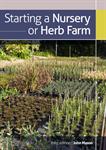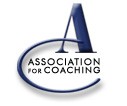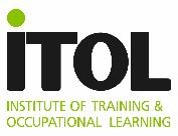 Accreditation and Recognition
Accreditation and Recognition
Accreditation and recognition is an extremely complex issue, given that there are hundreds (if not thousands) of accreditation bodies around the world, and no course is ever going to be accredited or recognised everywhere. The important thing is that you choose education that is going to be meaningful for what you need.
- ACS courses are first and foremost credible because they are substantial, developed and delivered by highly credible academics, with the primary focus always being on "quality learning".
- One of the best indicators of our credibility are the quality of our staff, the testimonials from our students, and the background of other institutions we are affiliated with.
- Our reputation has been built over many decades, across many countries; and through wide support from the horticulture industry.
- We also have a selection of formal credentials (some indicated below).
The Principal
The principal, John Mason, has been honoured by several professional bodies both in the UK and Australia. He is a fellow of: the Chartered Institute of Horticulture (UK), the Australian Institute of Horticulture, and of Parks and Leisure Australia. His books have used by colleges and universities around the world as texts and prescribed references in courses ranging from horticulture degrees to gardening apprenticeships. Several of his over 150 books have become best sellers (e.g. "Commercial Hydroponics" first published in 1989 has been printed 8 times, and still sells today. "Nursery Management" has been in print for more than 15 years)
Learning and Accreditation are Two Different Things
Learning involves increasing what you know, and developing a greater capacity to do things.
Accreditation involves judging you - or measuring what you know and can do, against a set of minimum standards
There are many different ways to gain accreditations. Learning to drive a car involves one person teaching you then a completely different authority testing you and giving you your license (i.e. accrediting you to legally drive). In the horticulture industry, people learn lots of different ways - both formally and informally. After learning, they acquire accreditations in lots of other ways (e.g. some join professional bodies and work through schemes to become certified professionals).

How important is Accreditation and Recognition?
If you plan to be a doctor or lawyer, they are critical. Unless your course is accredited, you cannot work in those professions. In horticulture and many other professions recognition is only a secondary factor when you apply for a job. Employers will take notice of whether a course is accredited when they look at a job application - but they also take notice of the subjects you studied, the amount of science in your course, your level of plant identification, how well you communicate, and other things. On the basis of all of these things, they choose who to give an interview to (or who to contract a job with)
Once you get the interview, your knowledge and presentation are what gets you the job. The importance of accreditation fades away at that point.
Once you get a job; it is your performance that affects your progress. What you know and what you can do will result in a career advancing. Employers don't say this employee is a better worker, but this other one has a better recognised qualification - so I will promote the one with the better recognised qualification.
 We understand these things at ACS. We have a clear focus on putting your learning before everything else. We don't spend money or waste our focus on accreditation if they are costly and distracting for our teaching staff -in this way we are different to some other colleges; but we strongly believe that this is both a more productive, ethical and sustainable way of providing you with an education that will serve you for life.
We understand these things at ACS. We have a clear focus on putting your learning before everything else. We don't spend money or waste our focus on accreditation if they are costly and distracting for our teaching staff -in this way we are different to some other colleges; but we strongly believe that this is both a more productive, ethical and sustainable way of providing you with an education that will serve you for life.
ACS has been established since 1979, and has established a high level of respect in academic circles within a range of disciplines in the UK, Australia and beyond. Staff include world renowned academics from several countries, and it maintains active partnerships with respected institutions in several countries including Ireland, Australia and the USA. Many of these affiliates are formally recognised by government education authorities in their respective countries.
The school’s credentials are varied, and include:
 |
International Approval and Registration Centre
Find out more here.
|
|
Accreditation Board of the Maldives
ACS is accredited by the Accreditation Board of the Maldives
|
 |
Australian Institute of Horticulture
The principal, John Mason, is a fellow of AIH. ACS holds Training Provider status with the AIH and is now listed as a Preferred Member Training Provider. As such, ACS students who meet AIH criteria are entitled to subscribe to AIH as the Category 2 Student member. http://www.aih.org.au/
|
 |
Complementary Medicine Association
College Member of Complementary Medicine Association assessed to teach a range of areas including Counselling, Nutrition, Natural Therapies.
|
 |
Association of Coaching (U.K.)
ACS Distance Education is an organisational member of the Association For Coaching. Students on the course are eligible to join the association as student members.
|
 |
ACS Global Partners Network
Member of ACS Global Partners Network – committed to Ethical Education
|
 |
Institute of Training and Occupational Learning
The Principal, John Mason, is a member of ITOL
www.itol.org
|
ACS and its staff are members of many UK and overseas industry bodies, including :
- Institute of Training and Occupational Learning (UK)
- Complimentary Medicine Association (UK)
- Chartered Institute of Horticulture (UK)
- Australian Institute of Horticulture
- Garden Media Guild
- Horticultural Media Association
- Australian Nursery Industry Association
- International Herb Association
- Association for Coaching (UK) Organisational Member (OMAC)
- Alternative Technology Association
- The Permaculture Association
- Study Gold Coast
- UK Register of Learning Providers, UK PRN10000112
Further Accreditation
ACS has held various other formal accreditation (including government agency recognition in more than one country) in the past, however many of these accreditations were found to add significant cost to courses, without providing any significant benefit to graduates.
ACS believes that the most ethical and efficient approach for us to take is to focus our primary attention on our courses and our students. We have found over several decades that this has resulted in a high level of satisfied graduates who have a much higher success rate in industry than if we focus more heavily on accreditation and recognition.
If your main reason for studying is to learn and increase your capacity to function within your chosen discipline, this could be an ideal college for you.
There are literally thousands of bodies around the world that grant accreditation; so if your main purpose is to obtain some type of formal endorsement from a particular organisation or government authority, then you will need to be sure about which authority you would like to be endorsing your course, and then seek a college that has that particular endorsement (or accreditation).
Many of the courses we have developed are offered by affiliate institutions who have Government accreditation. If you must have more formal recognition than what we offer, ask us to recommend one of our affiliates.
IS THE COURSE RECOGNISED?
This is a common question for students and colleges and not always so simple to answer.
The only real way for anyone to answer this question is to talk with a lot of employers, and industry professionals, and ask for their opinion. We encourage you to do that if recognition is of concern to you.
When asked, people may be asking any one of a multitude of different things. For some, recognition is about “endorsement”, while for others it is to do with “credibility”, and yet others, “how useful the course might be”.
If you look at dictionary definitions of recognition, you see thinks like “being acknowledged”, “a growing realization”, “acceptance of something being true” or even “understanding”.
Recognition of education is in fact a complex and multi faceted property. Recognition is in fact made up of a number of components; and education that is recognised in one way, is not necessarily recognised in other ways.
What then are some of the components of recognition?
Usefulness – What is the purpose of the course and how well does it serve that purpose. What are the capabilities of graduates a year or two after graduating. A course that passes students is only useful if the students do not forget what they have learnt a year or two after graduating. Some courses can implant temporary skills, while others can implant more permanent skills
Understanding - Is there a clear understanding of what the course involves. If the course outlines & documentation are unclear or scant; there can be uncertainty about whether understanding is strong.
Visibility – How visible is the course? What people are aware of it’s existence, and where are those people? Are they locals only, or spread around the world?
Acknowledgement – Who acknowledges the course? Who endorses it, not only formally but informally? Also who criticizes it? While courses might be supported by some, they can also be criticized by others. If you only become aware of one group, you cannot form a balanced understanding of it’s worth.
How well does someone understand this question when they ask it?
Over 40 years of involvement in post secondary education, I have come to conclude that most people don’t really appreciate what they are asking.
Most people have a subconscious desire to feel that a course they enter is safe and appropriate, and are looking for a yes or no answer.
Most colleges are looking to be able to give a yes or no answer; because that makes selling a course easier.
At the end of the day though; you can never accurately and clearly say that a course is or is not recognised without qualifying that answer.
To be ethical and honest, you should say such things as who it as and is not acknowledged by, and how well the course is both understood and visible by the world at large, etc.
How Well are ACS Courses Recognised?
The short answer is that our courses are more useful than many if not most of a similar duration; highly visible (you will see that from our web profile); endorsements are mixed as is the case with almost every course on the planet; and as far as understanding -you need to read our outlines and judge that for yourself.
Find out more - Contact us today
Find out more about ACS and our courses, contact us today -
By Phone (UK) 01384 442752, (International) +44 (0) 1384 442752
or email us at info@acsedu.co.uk
or use our FREE COURSE AND CAREER ADVICE - get in touch using our contact form.